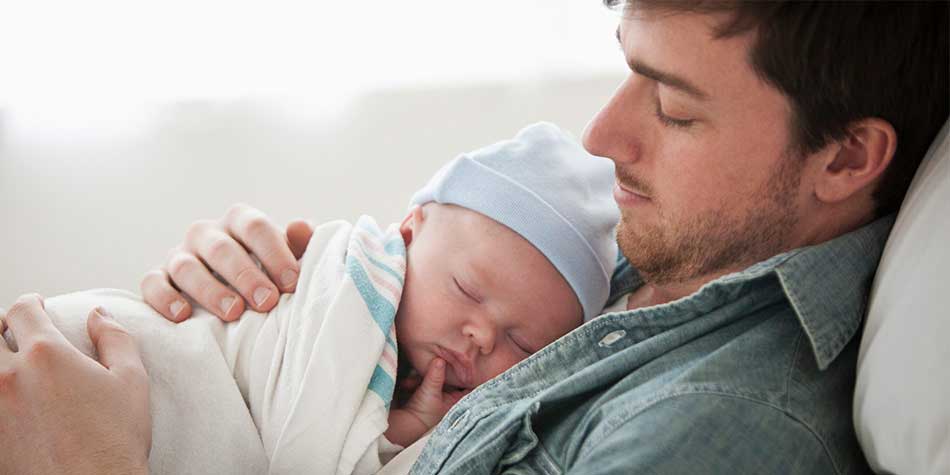
The definition of what it means to be a dad has changed considerably in the last 20 years. Dads today are more involved in day-to-day child care than their parents or grandparents likely ever were. They're interested in and know more about pregnancy and childbirth and recognize that changing diapers and getting up in the middle of the night with baby jobs for both parents.
If you'll be a first-time dad soon, you may be asking yourself how can I prepare ... and what exactly is a doula?
Here are a few tips and definitions to get you started.
Sign up for a childbirth class
Childbirth classes are one way you and your partner can prepare for baby. Most hospitals offer low-cost or free classes.
In class, you'll learn about the signs and stages of labor, pain management, vaginal and cesarean section (C-section) deliveries, how you can provide support as a labor coach, breastfeeding, and basic parenting. You may also get to tour the labor and delivery unit where the birth will take place.
Schedule a class three to four months before baby's due date and be sure to register in advance.
Pregnancy and childbirth words to know
Feeling overwhelmed by all the pregnancy and childbirth medical jargon? Don't worry: Both of you are new to this.
Here are a few terms you should know:
- Trimester: Pregnancy lasts three trimesters – or nine months.
- Sonogram: The pictures of baby made by ultrasound during the 20-week anatomy scan, which checks baby's development (and gender if you want to know).
- Preeclampsia: A pregnancy condition that can be serious. Symptoms include high blood pressure, swelling and protein in the urine.
- Gestational diabetes: High blood sugar during pregnancy.
- Breech presentation: When the buttocks or feet emerge first during birth. Some babies in the breech position must be delivered via C-section.
- Dilation: A measurement of the cervix before birth. When the cervix is at 10 centimeters, the baby is ready to be born.
- Stages of labor: There are three stages of labor. The first stage ends when the cervix is at 10 centimeters, the second stage is when contractions start and baby is born, and the third stage is when the placenta is delivered.
- Contraction: The tightening of the uterus to push baby through the birth canal.
- Induction: Starting labor artificially to protect mom's or baby's health or deliver a baby that is past his or her due date.
- Doula: A nonmedical person who provides emotional or physical support during childbirth. Some parents hire trained doulas, but dad can also be one. Also called a labor coach.
- Natural birth: Childbirth with natural pain relief and minimal medical intervention.
- Water birth: Labor, and sometimes delivery, in warm water.
- Birthing ball: A bouncy ball used for relaxation and pain management during labor.
- C-section: Childbirth by surgery.
- Epidural: Anesthetic given through a tube in the spinal cord during labor.
- Episiotomy: An incision made to widen the vagina for easier delivery.
- Apgar score: A measurement on a scale of one to 10 of a newborn's health taken a minute and five minutes after birth.
Where you fit in after baby comes home
After you've checked out of the hospital, it will be time to dive headfirst into parenting duties. Both parents should rest when possible. Change the diapers, feed the baby, and don't be shy about asking a trusted family member or friend for help so you can rest.
Talk with your partner about how you will continue to help. A teamwork approach makes the newborn phase easier for everyone. Maybe you can be in charge of bathing and agree to take turns getting up with baby at night.
You might find that you and your partner get minimal or no time alone after baby is born. This can be hard on your relationship. But having a role in your child's daily care will ease your partner's stress and strengthen your bond over time. You're an important piece of the puzzle.
$webqFacilityNumber
Need a Physician?